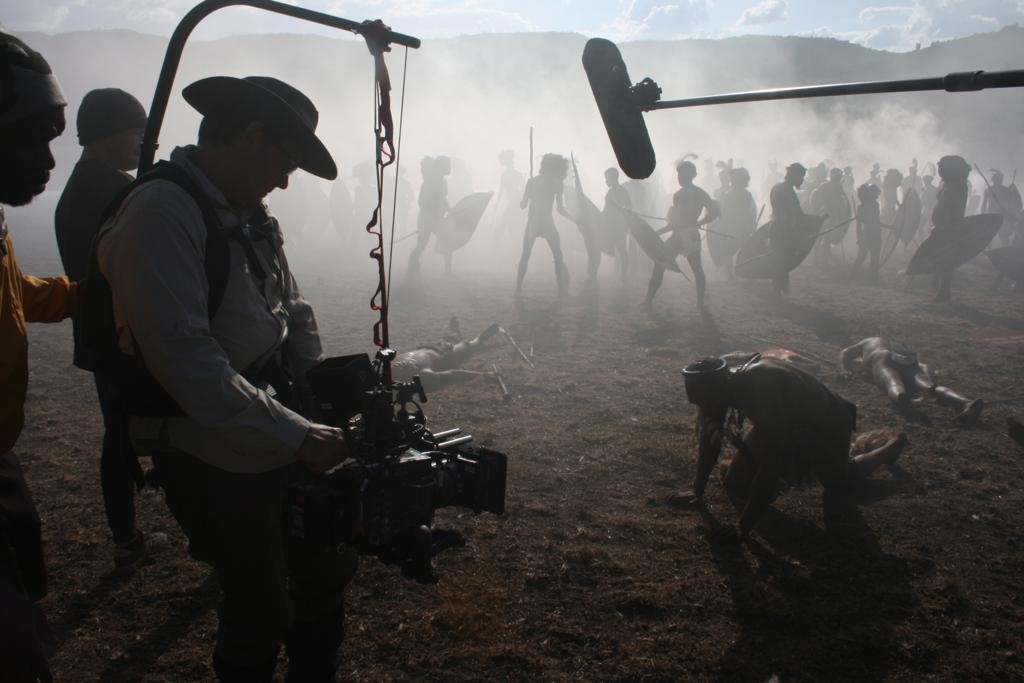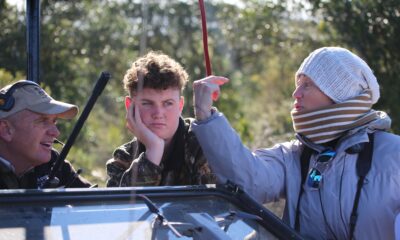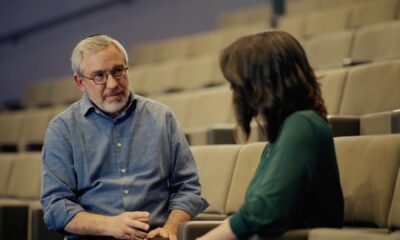
Lifestyle

Shaka remake an epic tale
The story of Shaka Zulu has been told many times, but never in the way that it will now appear on South African screens. The series Shaka iLembe tells the story in a whole new light and on a sweeping scale. South African expat, Daniel Zimbler, a writer for the show, played a key part in telling that story.
“This one’s epic. A huge, humbling privilege to write on this show and be part of the talented team bringing Shaka Zulu to life in 2023. On your [South African] screen June 18,” wrote Zimbler on his personal Instagram account while sharing the trailer for the 12-part series on the rise of Shaka Zulu.
Shaka iLembe is different, he says, because “unlike the 1980s series which tells the story of Shaka’s reign and demise from the perspective of the Englishmen who come into contact with him, we tell the story from a local perspective. We wanted to frame out the colonial narrative, and tell the story of the birth of the Zulu nation under Shaka from the inside out.
“The spoken language of the series is deep Zulu,” he says. “There’s been incredible attention to detail. Every bit of styling and design has been carefully researched and painstakingly recreated in a bid to tell this story, which begins in advance of the European histories in a way that is, to the best of our collective abilities, authentic. So the series feels like a culturally important moment.”
Set in the 1700s, Shaka iLembe tells the story of the making of the iconic African king, with iterations from his early childhood through to adulthood. Shaka iLembe means ‘Shaka the Battle Axe’ – a praise name for him. The production has been six years in the making, consulting historians, academics, and family descendants, including the incumbent King Misuzulu ka Zwelithini, Prince Mangosuthu Buthelezi, as well as the late King Goodwill Zwelithini.
Born and raised in Orange Grove, Zimbler attended the gamut of Jewish schools in Johannesburg and Cape Town. “I went to Kensington Hebrew Nursery School, then to Menorah Primary, then Yeshiva College, then did a brief stint at King David Linksfield, followed by a few years at Herzlia in Cape Town, before leaving for the United Kingdom in matric to study A-Levels.” He also attended the Habonim Dror youth movement.
“Habonim [Habo] gave me and my friends and this fun, carefree environment in which to be young, expressive, and creative. Through Habo and Herzlia, I met some of my closest friends and collaborators: Ari Kruger, with whom I wrote three seasons of Tali’s [Wedding, Baby and Joburg] Diary, and many other projects both post, present, and future. Also Josh Ginsburg [the director of the A4 Arts Foundation], who was my creative producer on our South African Film and Television Awards [SAFTA]-nominated feature documentary on David Goldblatt.”
But Zimbler almost didn’t follow his path as a screenwriter, executive producer, and director. “I studied A-Levels in Bristol and attended Oxford University as an undergraduate studying archaeology and anthropology. I did my masters in international relations, worked at a policy think tank – the Centre for Conflict Resolution in Cape Town.”
He loved his work at the centre. “I got to do interesting research throughout the continent. But this urge to work creatively and make things kept rearing its head. I had continued to make short films and write scripts in my spare time, and felt excited about making more and writing more, so I decided to change course.”
It seems like the right decision, as he is now a multi-SAFTA award-winning TV and filmmaker who has executive produced, developed, written, and directed popular, character-driven, genre-spanning, award-winning comedy and drama work that has reached millions of viewers worldwide. Now living in the United Kingdom with his partner and two young sons, he still feels strongly connected to his South African roots.
“I’d just finished head writing two seasons of the telenovela Isithembiso – more than 400 episodes of TV – when I heard rumours that Shaka iLembe was in the works. Like so many South Africans, I had watched and imbibed the iconic 1980s series with Henry Cele. And like so many South Africans, I felt that the story needed retelling.
“So I pestered and pleaded with my then-bosses Angus Gibson and Desiree Markgraaff at The Bomb Shelter to include me in the writing team. Soon after, I stepped off the telenovela and joined the Shaka-writing ibutho [regiment] to begin developing the show. It was a rigorous development process – reading written histories, studying oral histories, and weaving in the many tales that culminate in the birth and rise of Shaka Zulu.”
He most enjoyed “the deep research, the team effort, and the opportunity to engage with historians, praise poets, fellow writers, and creative minds in telling an epic story about such a hugely impactful figure and about the context into which he [Shaka Zulu] was born.”
The most challenging aspect was “getting the story right narratively, but also as the custodians of such a hugely important history to so many South Africans, striking the fine balance between accurate history and dramatic license”.
The series was filmed in South Africa and features much of the country’s wildlife and scenery. Key filming locations included the towns of Eshowe, Nkandla Forest Reserve, Port Edward, the Drakensberg, Mooi River, and Zulu Falls. Other parts of the series were shot on a purpose-built backlot near the UNESCO (United Nations Educational, Scientific and Cultural Organisation) World Heritage Site, The Cradle of Humankind.
To others wanting to go into writing for TV, Zimbler’s advice is to “love stories, and be excited by the idea of making them up. And you need the empathy to intuit what drives, hurts, and heals people you meet in life, and the characters you end up writing. You also need to love writing itself, as painful as it may sometimes be. David Mamet attributes this great quote to Hemingway: ‘There’s nothing to writing. All you do is sit down at a typewriter and bleed.’”
As for being in the age of artificial intelligence, “before December 2022, I thought I had the safest career in the world”, says Zimbler. “With the arrival of large language models a few months ago, I’ve had to rethink that. It’s one reason I’ve started growing vegetables – there’ll be something to do and something to eat when the machines take over.”
- Shaka iLembe is aired on Mzansi Magic.










